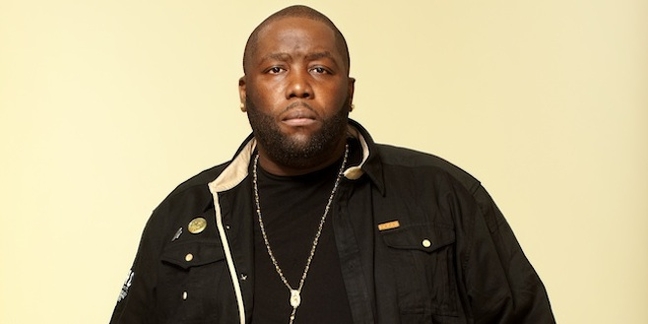
Killer Mike Co-Writes USA Today Op-Ed on Treatment of Rap Music in Courts, Talks Ferguson on CNN

Killer Mike has co-written an op-ed piece titled “Rap’s poetic (In)justice” for today’s issue of USA Today, with Erik Nielson, an assistant professor at the University of Richmond. Update: He also appeared on CNN once again—watch both interview segments below.
The article focuses on the case of Elonis v. U.S., to be heard by the Supreme Court this month. 27-year-old Anthony Elonis was sentenced to 44 months in prison for “communicating threats” after posting violent rap lyrics on Facebook. The op-ed calls the case “the latest—and highest level—in a disturbingly long line of cases in which rap lyrics have been used as evidence in criminal trials.”
Killer Mike and Nielson discuss the problematic treatment of rap music in courts:
The Supreme Court took [Elonis'] case to settle a fairly narrow legal question involving “true threats” jurisprudence. But in choosing Elonis, the justices have stumbled into a national debate about the expanding prosecution of rap music, which raises major concerns about the role of art and free speech in the justice system, as well as the commonly-held view that hip-hop culture is a threat to society.
Within the legal system, this view is becoming increasingly apparent. As recent research has revealed, rap lyrics have been introduced as evidence of a defendant’s criminal behavior in hundreds of cases nationwide, frequently leading to convictions that are based on prosecutors’ blatant mischaracterizations of the genre. Ignoring many of the elements that signal rap as form of artistic expression, such as rappers’ use of stage names or their frequent use of metaphor and hyperbole, prosecutors will present rap as literal autobiography. In effect, they ask jurors to suspend the distinction between author and narrator, reality and fiction, to secure guilty verdicts.
They elaborate on misconceptions about hip-hop culture:
No other fictional form — musical, literary or cinematic — is used this way in the courts, a concerning double standard that research suggests is rooted, at least in part, in stereotypes about the people of color primarily associated with rap music, as well as the misconception that hip-hop and the artists behind it are dangerous.
In fact, the history of hip-hop tells a very different story. In its formative years, for example, it was explicitly conceived by many as an alternative to the violent gang culture that consumed cities like New York. Since then, it has offered countless young men and women opportunities to escape the poverty and violence in America’s urban centers. As rapper Ice T once put it, “If I hadn’t had a chance to rap, I’d either be dead or in jail.”
Last week, Killer Mike delivered an emotional speech in St. Louis in response to the grand jury ruling in Ferguson. This summer, he discussed Michael Brown’s death on CNN, in an Instagram post, and in a Billboard op-ed.
CNN interview:
Watch the speech from last week:













Recent Comments